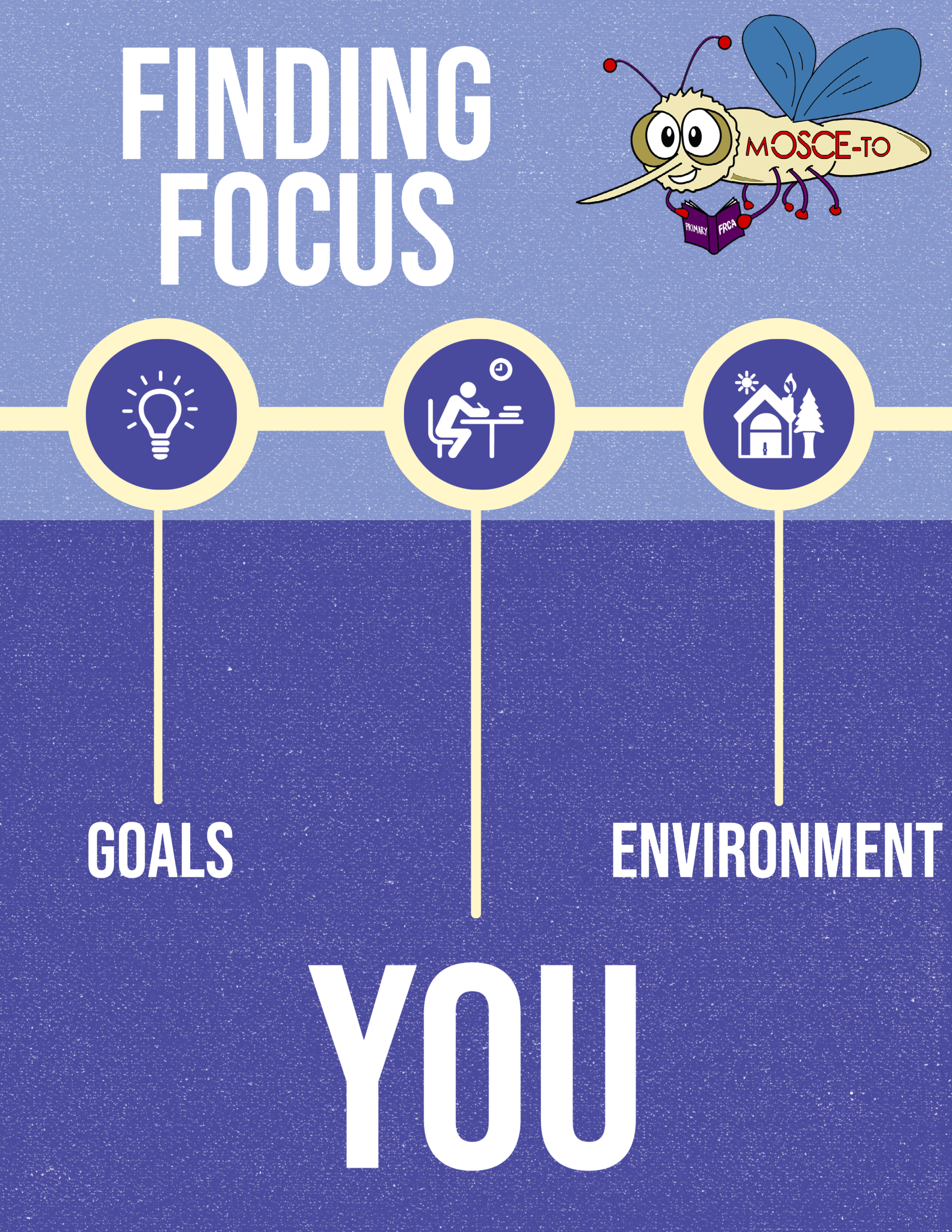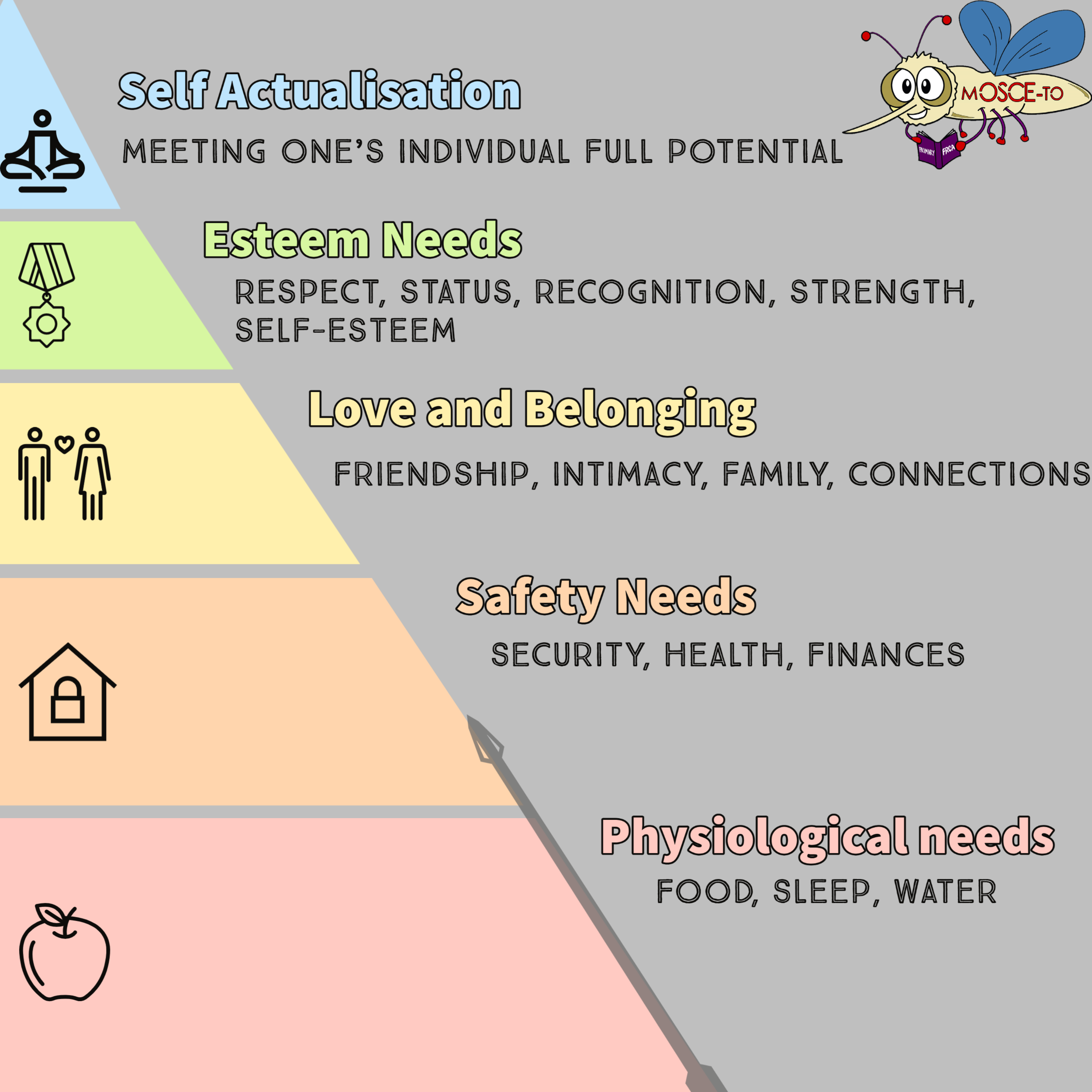How to find and maintain focus (5 min read)
With exams just around the corner, it can be easy to lose focus and forget about what you are working towards. In this article I will be giving you some easy ways to maintain focus.
Introduction
When thinking about things that influence focus, I noted there were 3 main areas that I wanted to look at: The goal, the environment and the person at the heart of focus - “You”. Thus this article was created!
Please note this is not an exhaustive list - just the ones I thought would be useful for the now!
Goals
Review the goal
This means being realistic about your goal. Look back at your checkpoints - are you covering material at your planned pace? Consider whether you need to adjust or change checkpoints to complete your goal. Try and be as realistic as possible.
Time box
The Primary FRCA assesses the breadth as well as the depth of your knowledge. With little time left till the exam, it is easy to get bogged down spending hours on “hygiene and sterilisation” but by using the “Time Box” method you can cover more material.
Choose to dedicate a specific amount of time to a subject – and stick to it!
e.g. “I will spend no longer than 1 hour on the pharmacology of anaesthetic agents”.
Prioritise Key Material – common things are common
There is no point wasting precious hours learning about optical fibres when you don’t have an understanding of the physics of gases. Whilst these are both examined in the primary FRCA, the physics of gases is much more likely to be assessed and will be worth many more marks, Be savvy with your revision in the last stages.
2. Environment
Below, I have summarised some key research pieces which looked at environmental factors in study.
Noise is good
We all know that classical music can enhance revision, but did you know that this also applies to ambient noise? A 2012 study showed that moderate noise levels can enhance creativity and promote abstract processing (1) – so turn up the music (but not too high as higher volumes had the opposite effect!).
Temperature is important
Better to study in a cold room than a warm one? Well, a study looking at task performance showed that performance increases up to 22 degrees C then starts to decrease above 23-24 degrees c. So set that thermostat to 22 degrees C to get the best benefits! (2)
You are the best judge of your environment - use it to your advantage!
The time, the location, the lighting, the set up - are all individual. Every person has their own “peak performance” set-up and to help you focus you need to be able to enable this setup.
The environment has also been shown to modulate the stress response - a small study released early 2021 showed that nature has a restorative effect on happiness and how people manage their stress. (3)
3. You
Focus begins with you, so we need to optimise “you” in order to reap the rewards.
State of mind
Have you slept? Have you eaten well? Are you exercising? Are you managing your stress?
These might sound like a broken record, but are all scientifically linked to aiding focus. The theory behind this is linked to Maslow’s hierarchy of needs (4) (pictured below). In this pyramid, it is hypothesised that individuals must meet some of these base needs, known as deficits, to be able to progress up to higher levels.
Maslow’s hierarchy of needs - One does not have to fulfil each level 100% to be able to “ascend” to the next level.
I realise this article is about maintaining focus - so i’d like to ask you this. If you are hungry/thirsty, will you be able to focus?
A good way to help maintain focus is to do a daily check in with yourself.
Minimise external distractions
For the last few weeks before your exam, if it is possible to reduce your workload – then do it (as long as it enhances your state of mind!)
Delegate household chores (will require bribes)
If you can, delegate parental responsibilities (consider the cost of childcare vs the cost of resitting the exam)
Reduce the time spent preparing food (consider ready meals/batch cooking)
Book annual leave
Avoid planning major life events near the exam (e.g. house move, marathon, sports with a high risk of injury )
Maintain focus using the Pomodoro Technique
This is a famous focus technique, developed by Francesco Cirillo in the 1990’s to improve productivity through alleviating anxiety, reducing distractions and boosting motivation.
Briefly speaking, it is 25 mins of uninterrupted study (a pomodoro) followed by 5 min breaks. After 4 successive “pomodoros”, 15-30 minutes of break time can be taken.
Apps such as forest use the pomodoro technique and can be incredibly useful if you need an extra nudge. (and a way to prevent yourself from visiting social media!)
In Summary
I hope that the above tips will help you succeed in finding and maintaining your focus 😊
Ultimately, the ability to focus depends on you. Good Luck!
Please like and share posts on our social media, and comment down below. It really helps us to get the word out there :)
NB: All the above is my own interpretation of the best ways to focus and is by no means the only way to focus!
References
1. Mehta, Ravi, et al. “Is Noise Always Bad? Exploring the Effects of Ambient Noise on Creative Cognition.” Journal of Consumer Research, vol. 39, no. 4, Oxford University Press, 2012, pp. 784–99, https://doi.org/10.1086/665048.
2. Seppanen, Olli, Fisk, William J, and Lei, Q H. Effect of temperature on task performance in office environment. United States: N. p., 2006. Web.
3. Nathalie Michels, Fien De Witte, Eline Di Bisceglie, Maya Seynhaeve, Tori Vandebuerie, Green nature effect on stress response and stress eating in the lab: Color versus environmental content, Environmental Research, Vol 193, 2021, 1 https://doi.org/10.1016/j.envres.2020.110589.
4. Maslow, A. H. (1943). A theory of human motivation. Psychological Review, 50(4), 370–396. https://doi.org/10.1037/h0054346
5. Cirillo, Francesco. "The pomodoro technique (the pomodoro)." Agile Processes in Software Engineering and 54.2 (2006): 35.



